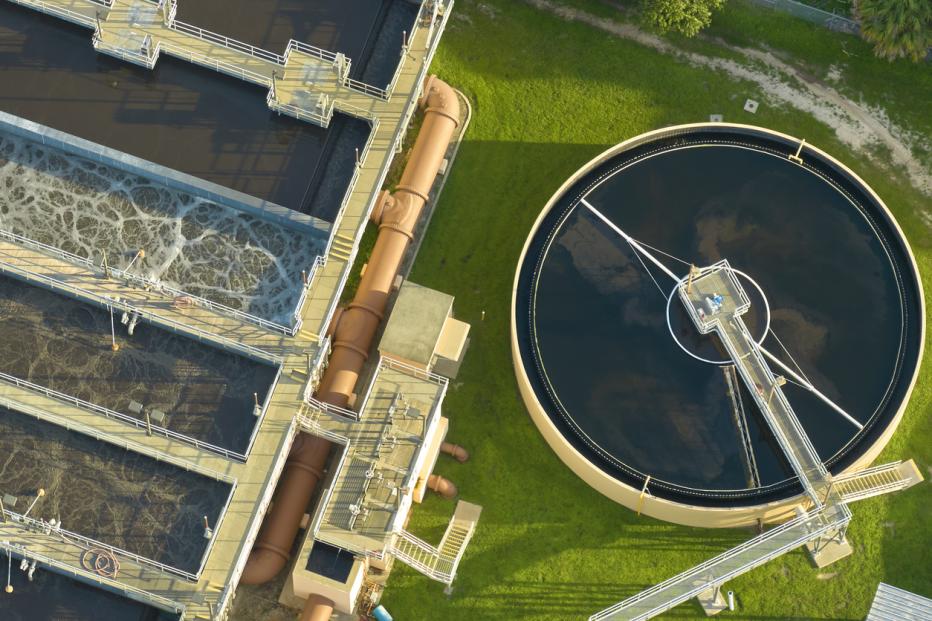Jacobs to Advance Nitrous Oxide Emissions Research in the Water Sector
New project for The Water Research Foundation will develop an industry-first database and decision support tool for N₂O quantification and mitigation.
Jacobs is leading a research project funded by The Water Research Foundation (WRF) that will advance global understanding and mitigation of nitrous oxide (N₂O) emissions from water resource recovery facilities (WRRFs).
In collaboration with 25 partner water and wastewater utilities and Princeton University, Jacobs will deliver an industry-first N₂O monitoring project, including a project database and decision support tool providing utilities with an improved understanding of N₂O risks and mitigation measures.
As countries and states decarbonise their energy supplies, direct process emissions of N₂O and methane produced during wastewater treatment can account for up to 75% of the greenhouse gas (GHG) emissions reported by water and wastewater utilities. N₂O – which has a global warming potential (GWP) 273 times higher than CO₂ – is produced during the biological treatment processes at WRRFs.
In countries where energy-related emissions have come down significantly due to the adoption of renewable electricity, ambitious net zero plans have been set at the sector level. Denmark, for example, has recently published a proposal for N₂O regulation to support their ambition to reduce N2O by emissions by 50% at WRRFs. In Switzerland, an innovative N2O abatement programme exists, while in the U.K., Australia and New Zealand, ambitious sector-level and utility level targets are being set to reduce Scope 1 emissions.
N₂O emissions at WRRFs are highly complex and variable depending on site-specific conditions, creating challenges for accurate monitoring, quantification and mitigation. The research project will improve understanding of N₂O emissions by developing whole-plant N₂O emissions estimates across multiple WRRFs that employ commonly used treatment processes. The estimates will be developed by implementing continuous online monitoring for a minimum one-year period at partner utilities’ facilities. Compiled with additional industry data in a first-of-its-kind N₂O database, the project will provide standard methodologies and guidance for N₂O quantification and mitigation at WRRFs and a decision-making tool to support utility and country-level implementations.
Reducing process emissions is critical to the water sector’s role in climate mitigation and requires concerted action to understand N₂O production and reduction potential at water resource recovery facilities.This Water Research Foundation project will develop practical guidance for N₂O monitoring and mitigation, drawing on our technical expertise at Jacobs and a collaborative global network of utilities tackling greenhouse gas emissions.
Emma Shen, Jacobs Global Principal for Wastewater Energy Optimisation and Sector Decarbonisation
The research findings will also contribute to a separate WRF project, supported by Jacobs, which is developing a GHG emissions data library for water utilities in the U.S.
About water at Jacobs
Addressing challenges like climate change, water scarcity, aging infrastructure and emerging contaminants, managing this essential resource has never been more complex. From drinking water treatment and reuse to water resource recovery and resilience, we’re working with our clients to protect communities, industries and the environment, and provide them with the water resources they need to thrive.
About the Water Research Foundation
The Water Research Foundation (WRF) is the leading research organisation advancing the science of all water to meet the evolving needs of its subscribers and the water sector. WRF is a nonprofit, educational organisation that funds, manages and publishes research on the technology, operation and management of drinking water, wastewater, reuse and stormwater systems—all in pursuit of ensuring water quality and improving water services to the public.

